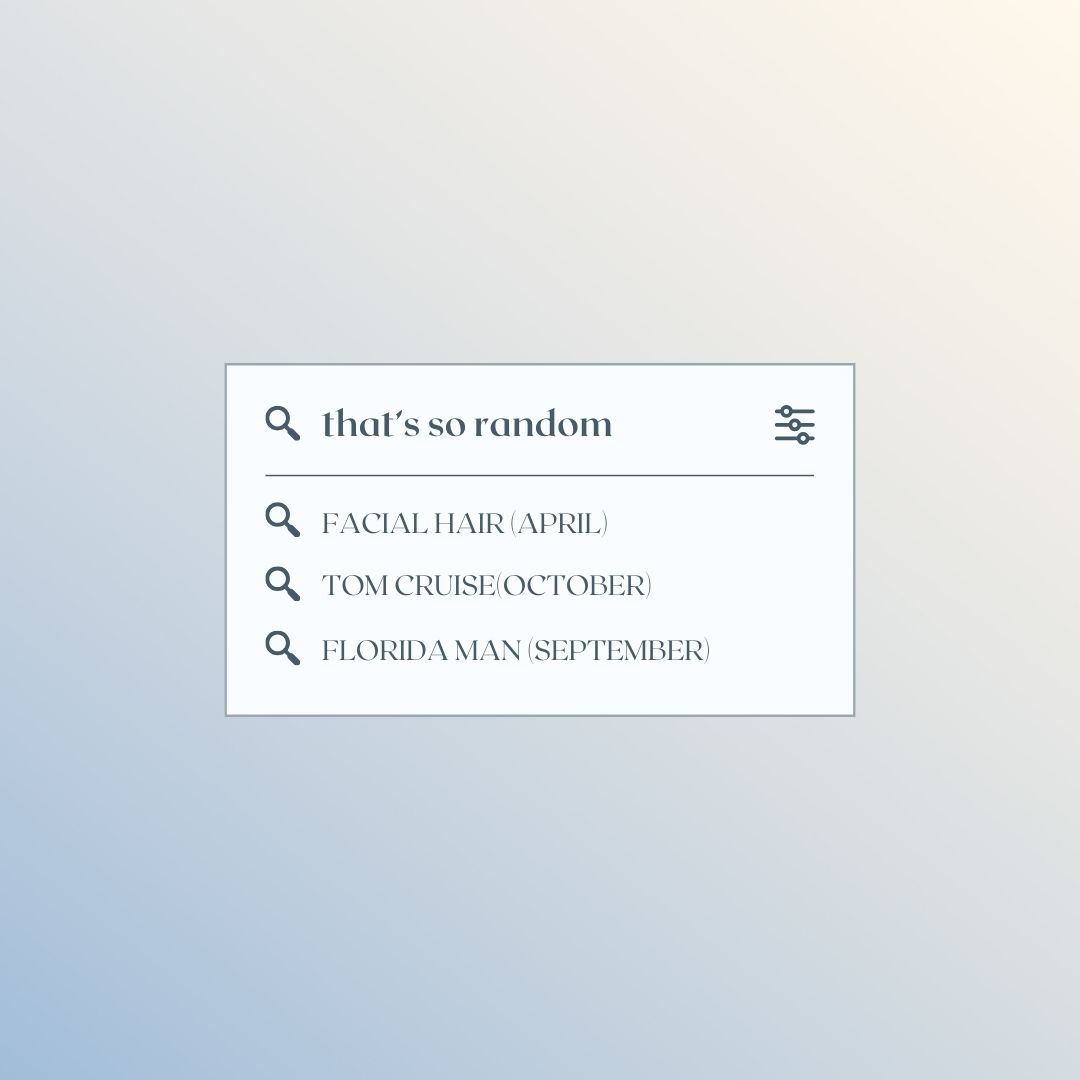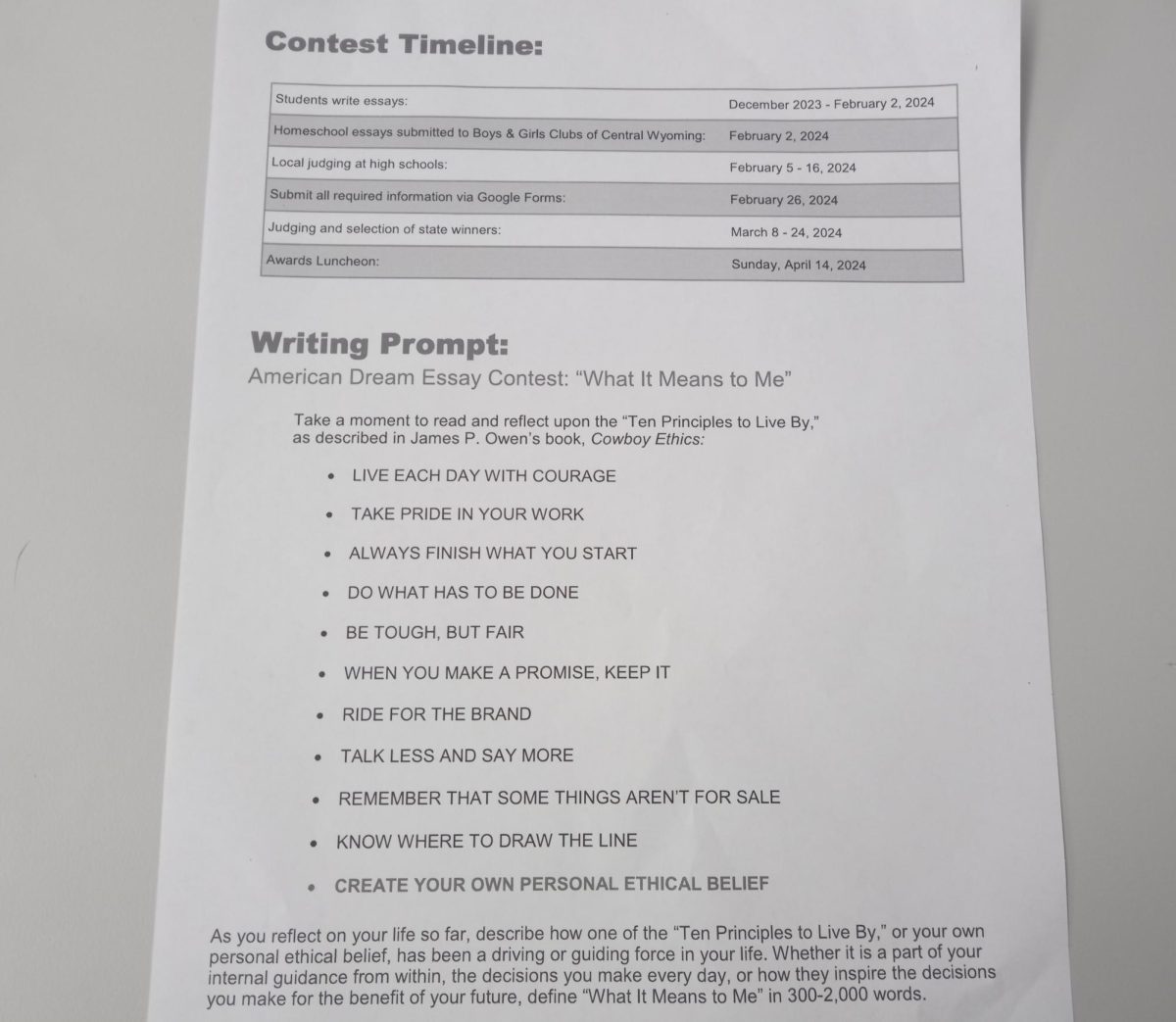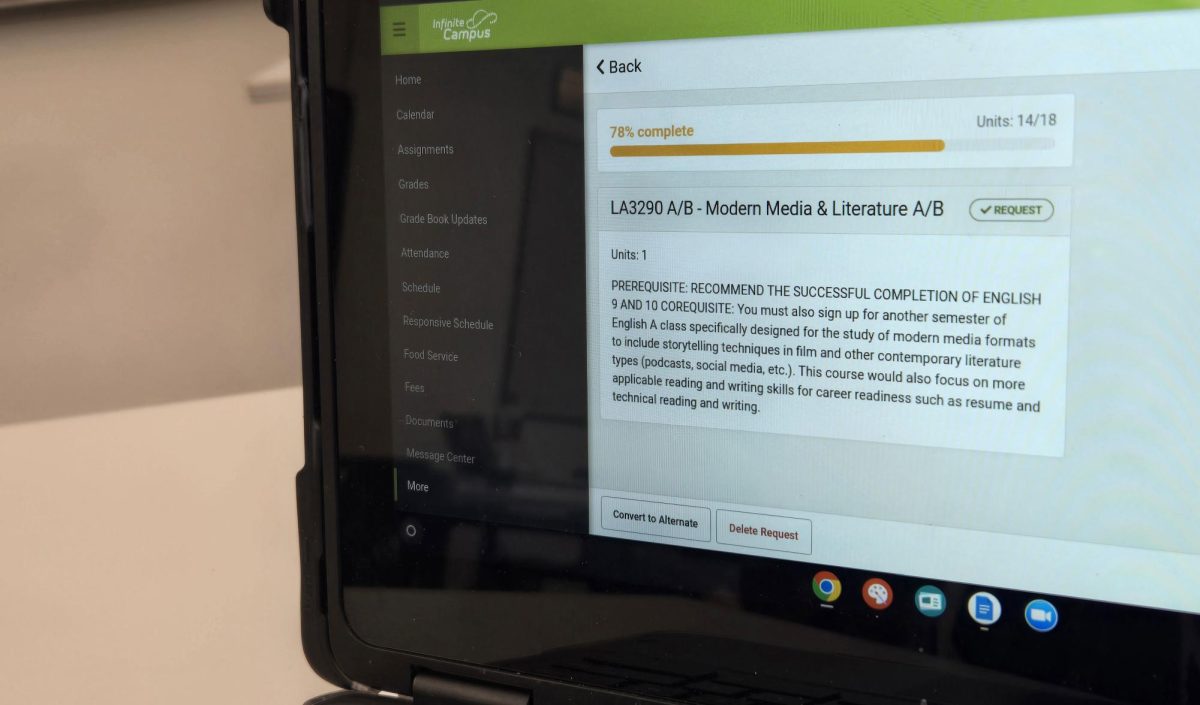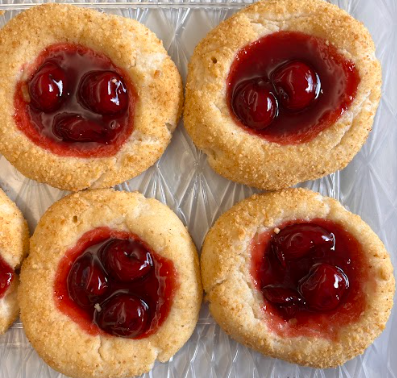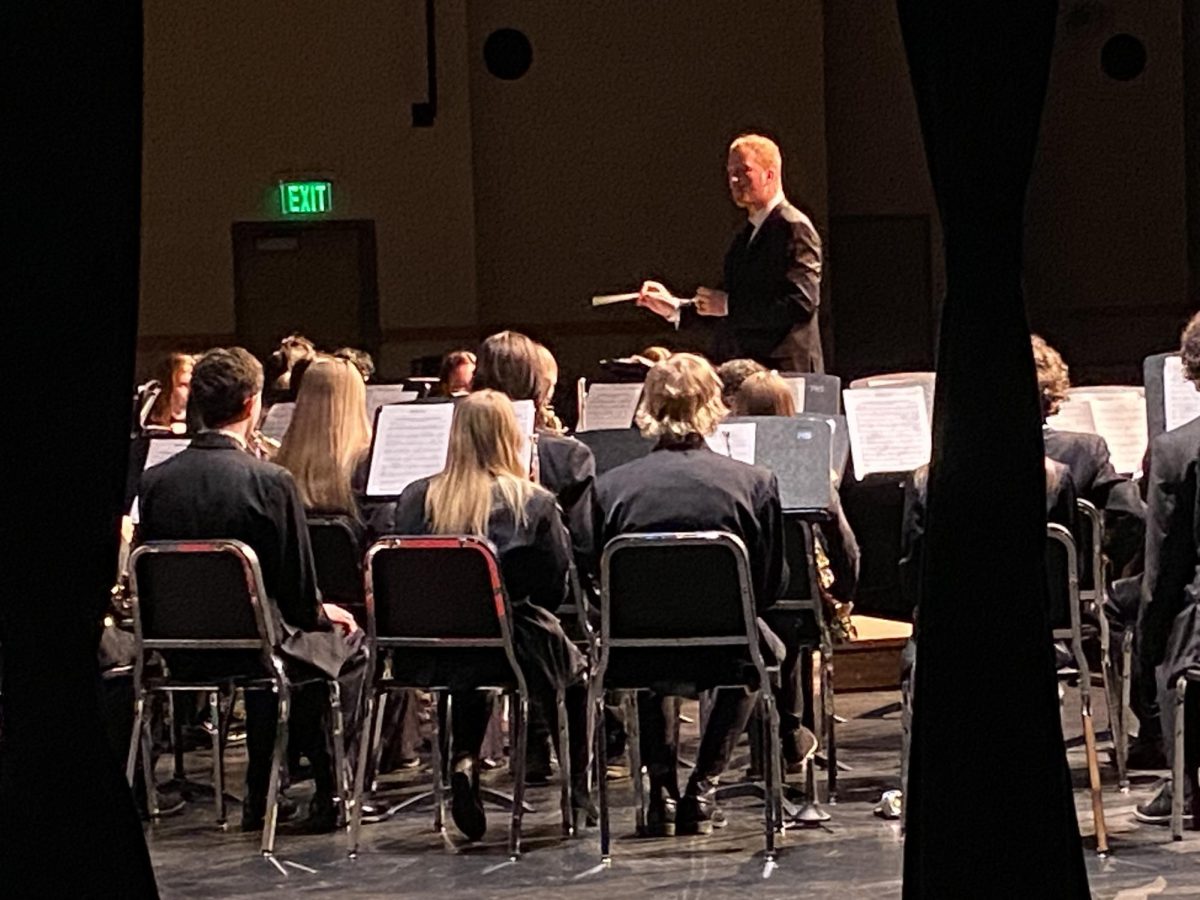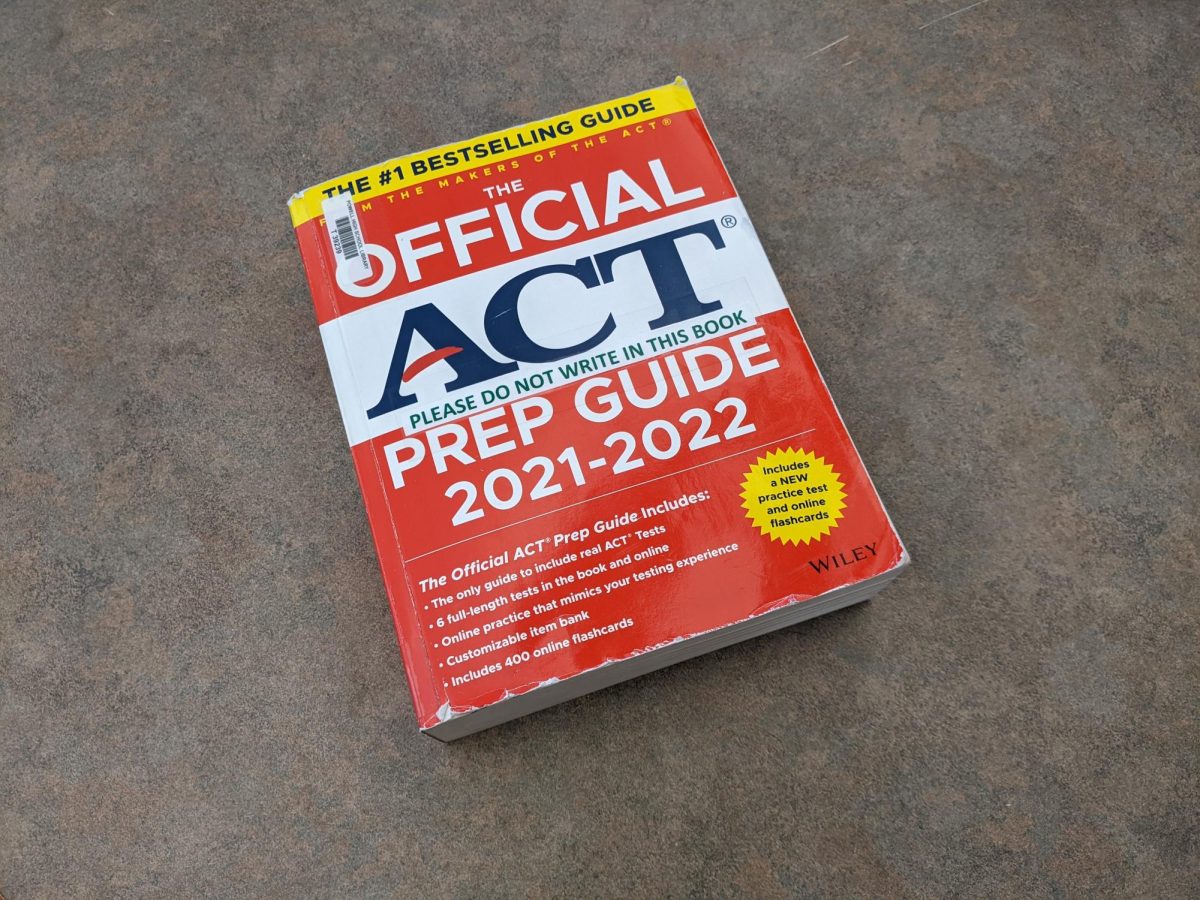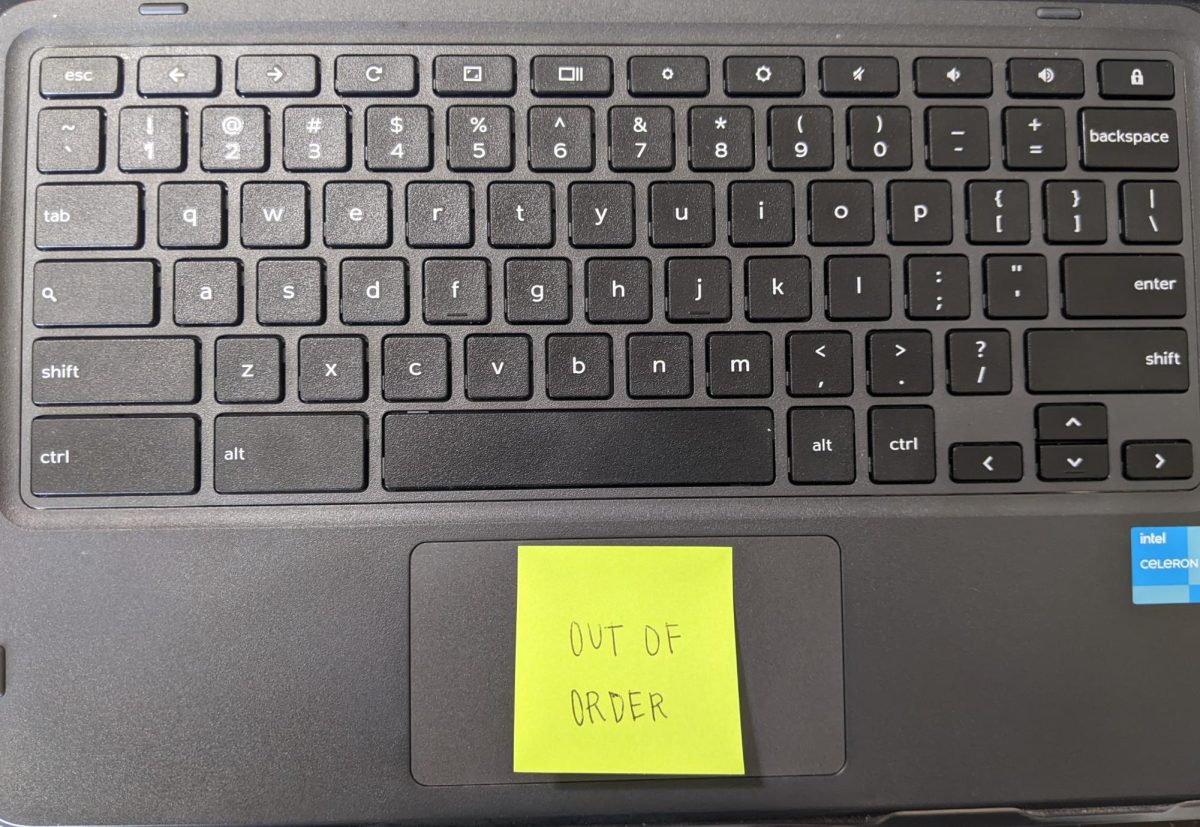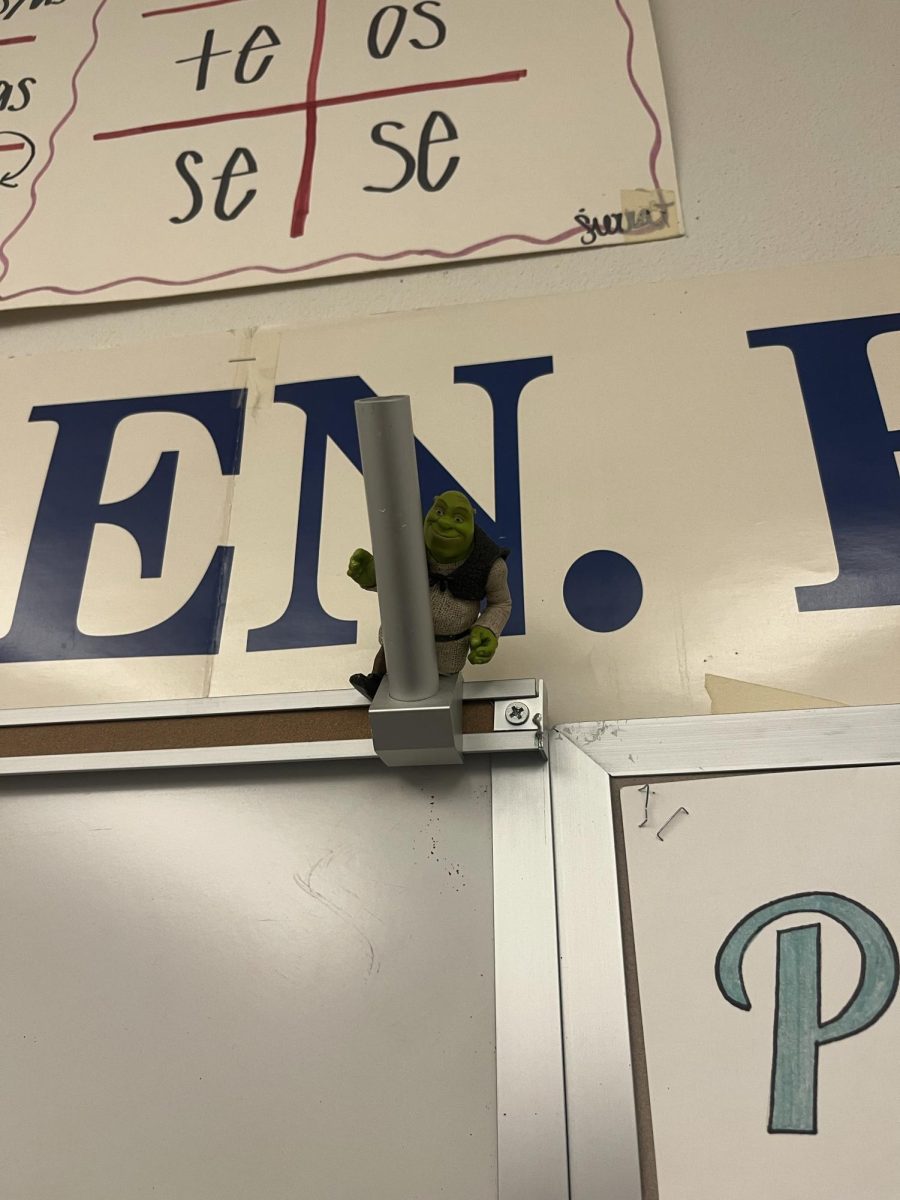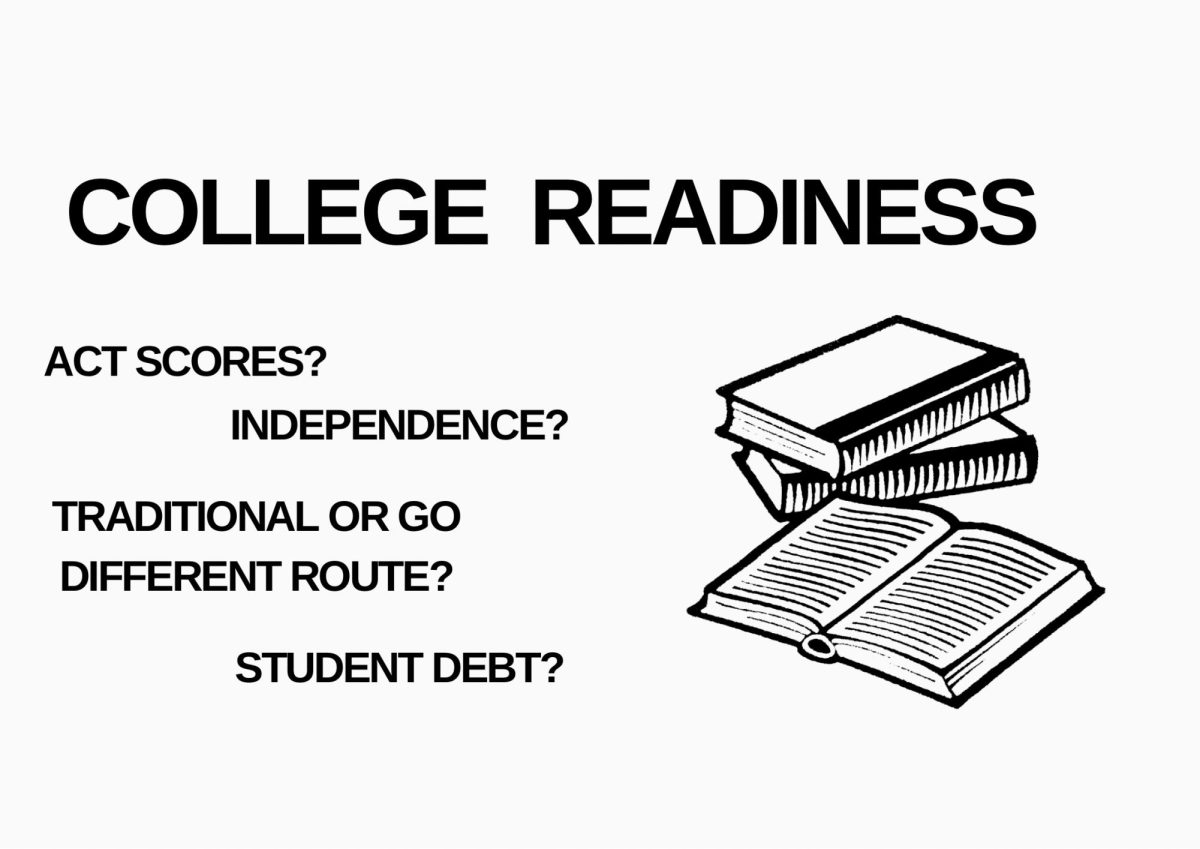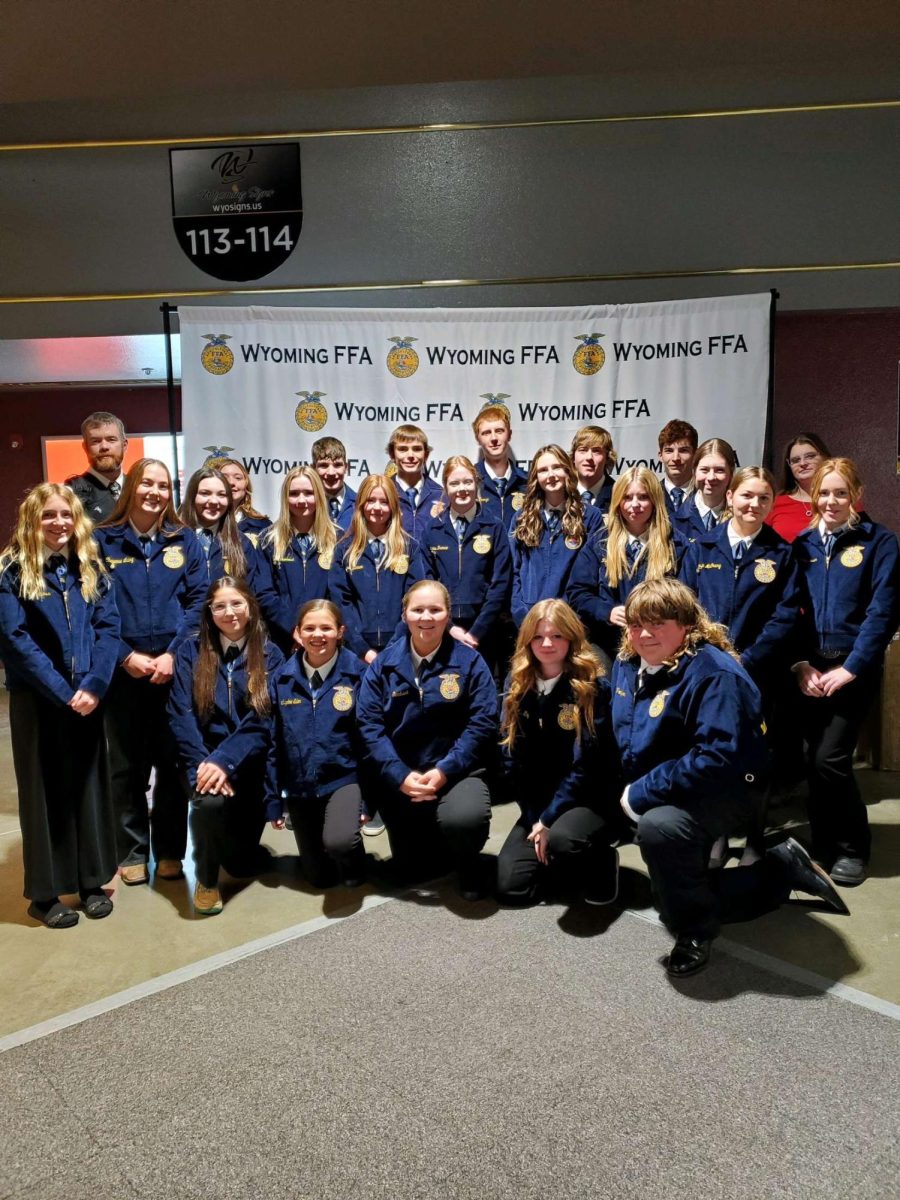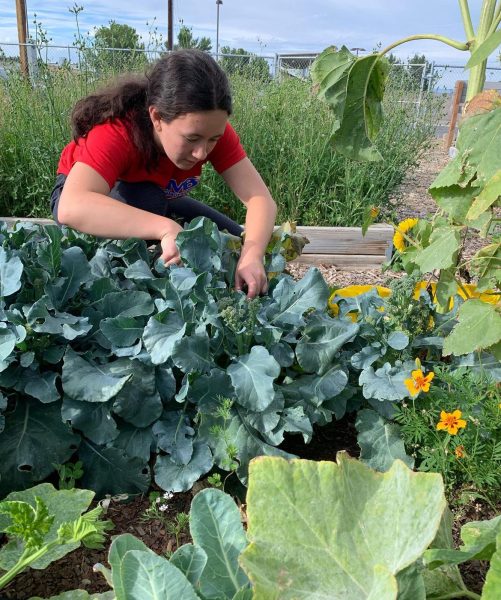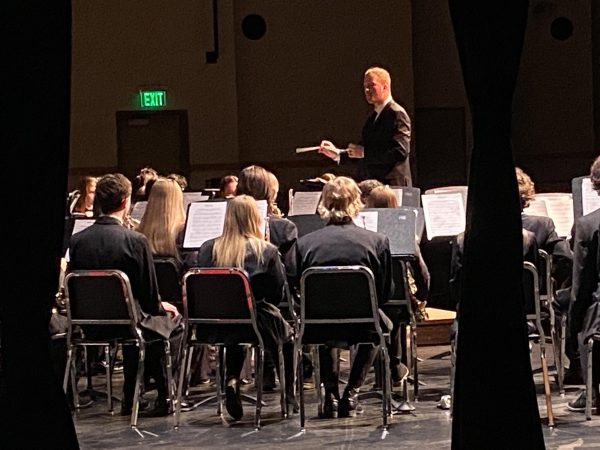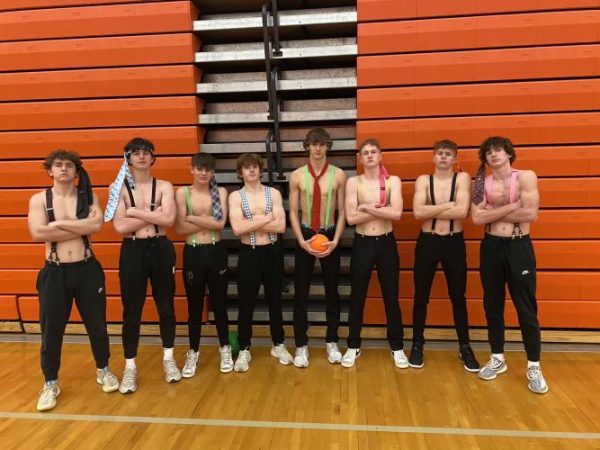CANDY, SODA AND JUSTICE
Learning health and wellness policies through “Justice for Sherman”
Senior Caden Sherman sells candy to students during English 12. Sherman sold students candy out of a rolling cooler before he was asked by the administration to stop.
In any school district there are always rules and regulation staff and students must abide by, some of which may not be common knowledge to all. Senior Caden Sherman stumbled across several lesser-known policies while selling candy and soda to students during school, a violation of school policies.
“I have been [selling soda and candy] for over a year. I started carrying them around in my backpack for personal use and my buddies were like ‘Hey, can I buy that off you?’” senior Caden Sherman said. “On a normal day, I would have 50 plus customers or people trying to buy from me. I would say I made $30 to $40 a day from profit.”
On Oct. 20, Sherman was called to the office and asked to discontinue his business selling treats to students during class because it violated school policy. It wasn’t long before students began spreading “Justice for Sherman” via social media posts, classroom chatter and even bathroom graffiti, along with many questions. Just what exactly was done wrong?
According to the Wyoming Department of Education’s “All Foods Sold at School” policy, to be allowable, a competitive food item must: meet all of the proposed competitive food nutrient standards, be a grain product that contains 50% or more whole grains by weight or have whole grains as the first ingredients, or have as the first ingredient one of the non-grain main food groups: fruits, vegetables, dairy, or protein foods, or be a combination food that contains at least ¼ cup fruit and/or vegetable.
Breakfast and lunch at PHS are funded by the National School Lunch and Breakfast Program, in order to maintain these funds the school must follow specific guidelines and policies set in place by the NSLP.
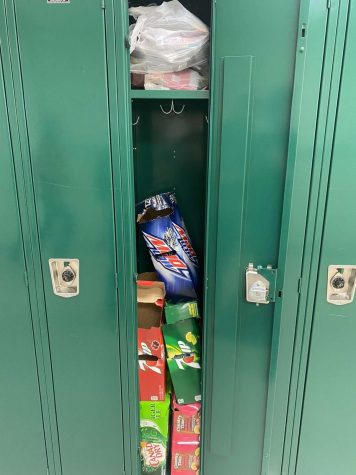
“[The school district] receives close to $800,000 a year… from the federal government through the State of Wyoming to subsidize our meals here,” Principal Mr. Tim Wormald said. “Basically we can sell the meals for a lot cheaper than… if you were to go to McDonalds or something like that… In order for us to receive that and be eligible to receive that, we must abide by those rules and if we dont they can come in and audit us.”
PHS is a public school, but it is still the school district’s privately owned property and has rules that govern it. School policies are set in place with the best intention for the students and while some rules may seem unnecessary at first glance, there are reasons behind them.
“We can’t just allow anybody to come onto school grounds and sell whatever they want; you could imagine that might be pretty chaotic,” Mr. Wormald said. “…there might be things that are being sold and purchased at school that we wouldn’t approve of at all; they might just not do anything to advance our objectives at school.”
One of the school district’s objectives can be found in the school’s “health and wellness” policy, which is set in place with the intent to “help students develop positive attitudes, behaviors, and skills associated with lifelong healthful eating patterns as well as learn the short and long-term benefits of a physically active and healthful lifestyle.” Selling unhealthy foods is not a direct violation of this policy, but it does go against the intent of the policy by promoting unhealthy eating patterns.
“The idea of having a health and wellness policy is to encourage a healthy lifestyle,” Mr. Wormald said. “So the reason we don’t have [something like] McDonalds being served in the cafeteria everyday is because we have to offer a healthier choice; that’s part of [the health and wellness] policy as well as some of the policy that comes from the state.”
Selling candy and soda goes against school policy on health wellness as well as state policy on competitive foods and drinks, but what if a student wanted to sell non-food items on school grounds? The answer to this question is: it depends.
“…If a student had an old pair of sneakers that he or she no longer wanted and made arrangements to sell them to a friend and that exchange happened here at school, I wouldn’t say anything about it, but it’s kind of that idea of an ongoing business… on school grounds. That’s where we get into a bit of a problem,” Mr. Tim Wormald said.
“Justice for Sherman” served as a learning opportunity for both students and staff, providing an opportunity to educate students about lesser known policies.
“I have no regrets; I made good money and I learned a lot,” Sherman said. “It was definitely a business endeavor because I would go down and buy $100 worth of soda at one time, and it was a risk I was willing to take. It worked out for the most part for a long time.”

